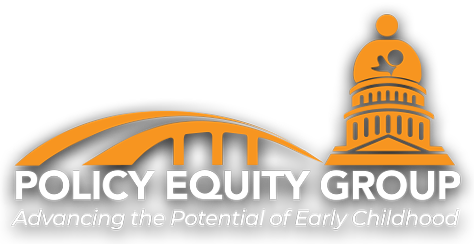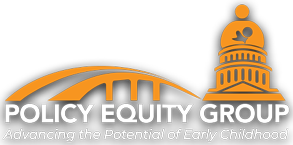Who We Are
Perhaps the best advice we received when starting our organization was: “You have to know your why.” Everyone should have a core story that drives them. We wanted to share ours.
Melissa Dahlin, Ph.D.
In my childhood, family always came first. My childhood was filled with laughter, stories, and adventures I experienced alongside my parents, brother, grandparents, uncles, aunts, and cousins. I felt valued, safe, and free to pursue my intellectual curiosity when I was with them. This curiosity led me on an educational and professional journey that drives my passion to contribute to an early care and education field that is inclusive, equitable, and responsive to children, families, and practitioners.

My professional journey began as a preschool teacher in Taiwan, where I followed an unexpected opportunity to teach in a culture outside the US. During my five years there, I recognized my naïveté in thinking education was value- and culture-neutral, a somewhat “universal” experience. Listening to my colleagues and students’ families share their views and observations of education made me question many of my assumptions about the purpose and structure of educational systems. This led me to pursue a master’s degree in international educational development at Teachers College, Columbia University, where I took a course on US early childhood policy. Learning about the inequities in access to high-quality, affordable early childhood opportunities in the US shocked me. I could not ignore the disparities in the system—and I knew whatever small part I could play in changing the system, I would.
I moved to Washington, DC, and started as a research assistant at The Finance Project, where I contributed to projects such as fiscal mapping of early childhood services and helped to staff the Office of Head Start’s National Center on Performance Management and Financial Operations. Later, at the Education Development Center, I spent five years providing technical assistance to state-level early childhood leaders across the US through the Center on Enhancing Early Learning Outcomes (CEELO). These roles solidified my belief in the importance of evidence-informed early childhood policies.
Yet, an even larger influence on my view of early childhood policy was the time I spent with children and families as an infant/toddler room coordinator with the Playtime Project. As I got to know families experiencing houselessness, I witnessed the unintended consequences of many well-intentioned policies. Adding to this, I played with children who were curious, active learners, and I felt frustrated that our systems do not see and celebrate a child’s innate enthusiasm for learning. This led me to the doctoral program in education at the University of California, Irvine, where my PhD studies equipped me to identify ways in which research can inform policies that are responsive to children, families, and practitioners.
Over and over, I have seen how our current early childhood system is not working. That drives me to seek out ways to improve it. How can we design policies that amplify family strengths? How do we implement learning trajectories for children that are joyful, engaging, and support lifelong learning? How do we better support the work of early childhood practitioners? How do we promote equity in early childhood education? These questions spur and sustain my professional commitment to the early education field.

